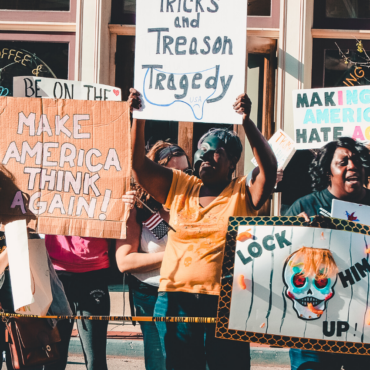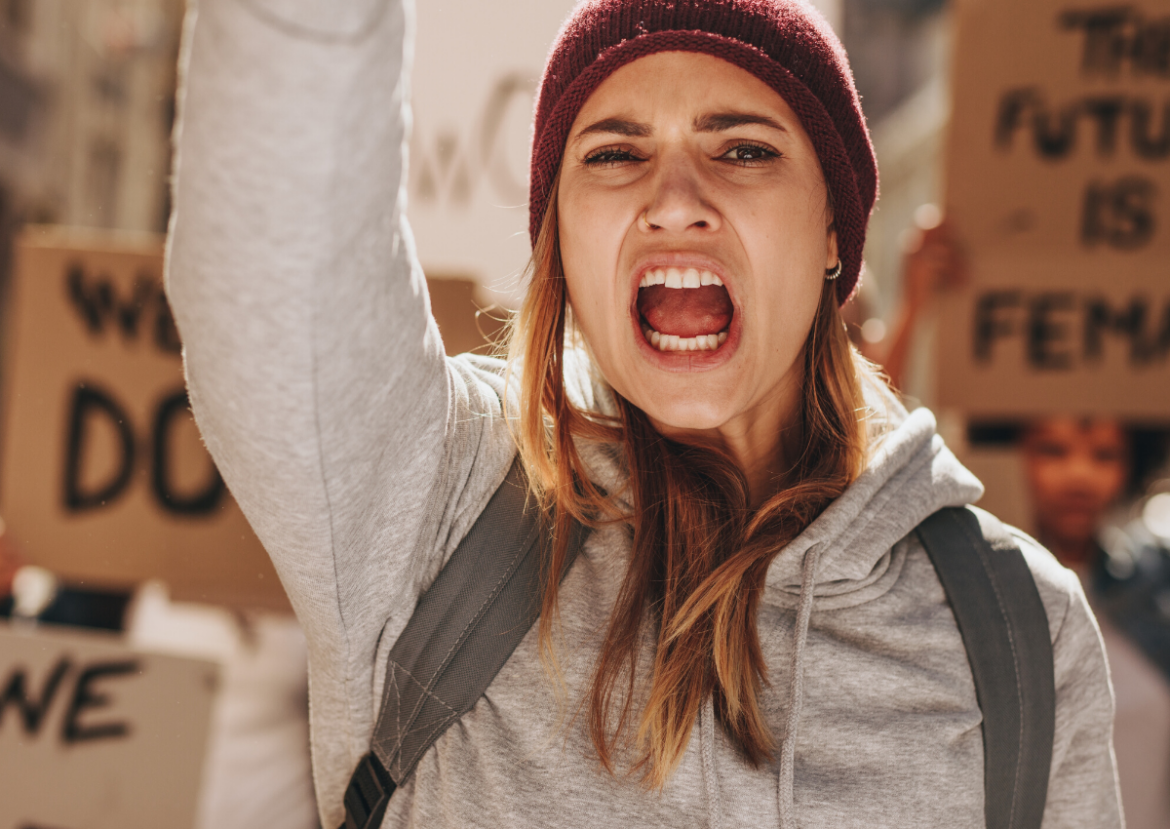
Angry Activists Don’t Change Anything – Part II
You never change things by fighting the existing reality. To change something, build a new model that makes the existing model obsolete. Buckminster Fuller Constructive Failure In a December 2014 […]

Those who profess to favor freedom, and yet deprecate agitation – want rain without thunder and lighting. The struggle may be a moral one, or it may be a physical one, or it may be both moral and physical, but it must be a struggle. Power concedes nothing without a demand. It never did and it never will.
FREDERICK DOUGLAS
Whether the radio is tuned to country, pop or 80’s rock when my kids are in the car, I end up changing the station for eight out of ten songs that come on. Responding to their questioning why, I inevitably explain the stories being told in the songs are disrespectful of women and I want them to learn to honor themselves and women in general.
I, unfortunately, can believe that 79% of men between 18 and 30 consume pornography regularly and that a vast majority of it portrays violence against woman. A business partner of mine recently confronted me about how I regularly referred to her and her female co-worker as “guys,” and how I usually use the masculine form of pronouns. My daughters are growing up in a world where almost everything they read and hear prioritizes the masculine identity. My wife is one of only a few women in senior leadership at a relatively conservative institution. Throughout every day, she is consciously and subconsciously contemplating her identity as it relates what to wear, how aggressive to be and how to share her emotions. I’ve never even considered such things as a man. These few anecdotes don’t carry the weight of statistics about violence to women or equal pay, but they help make reasonable the assertion that this is still a “man’s world.”

With the kind of music we promote, the images we consume and the language we use, we are making the same statement about our value for women as those who denied women the right to vote. We’re stating that we believe women are somehow less than men. It is on this fulcrum that the women’s suffrage movement levered the world. The suffragists were not trying to convince society that something was right; they were simply helping men and women admit what, in their own hearts, they already knew was right. In the movie Iron Jawed Angels, Hilary Swank portrays militant women’s suffragist, Alice Paul. The pictures of Alice’s treatment, while unjustly imprisoned are literally sickening. She is left in solitary confinement, force-fed to the point of permanent physical and psychological trauma. One scene opens with her despondent, emaciated, sitting on a metal chair at a metal table in a dimly lit stark room. Across from her is the well-dressed, bespectacled, male prison psychologist, legs crossed with his pen and notepad as if sitting down to a counseling session with a white collar client. He is portrayed as an agent of some of the highest powers in the Justice Department tasked with damage control as it relates these radical women who are upsetting the status quo. He asks her some insincere innocuous questions to establish rapport. Then he asks her directly to explain why she’s doing what she’s doing. She squares her shoulders and leans forward, her eyes fix on his and in agony she struggles to whisper the following condemnation:
“You ask me to explain myself. I just wonder what needs to be explained. It should be very clear. Look into your own heart. I swear to you mine’s no different. You want a place in the trades and professions where you can earn your bread – so do I. You want some means of self-expression, some way of satisfying your own personal ambitions – so do I. You want a voice in the government of the country in which you live – so do I. What is there to explain?”
Some who considered themselves radical, others who were willing to take the longer and slower route, and the many who were completely against women’s suffrage, all by some natural or divine law, knew that women and men were intrinsically equally valuable, even if they had not yet admitted it to themselves. In 1920, by a margin of just one vote in the final ratifying State of Tennessee, a constitutional amendment affording women the right to vote came to be.
All the work of the women’s suffrage movement was calling people to commit to something they already knew was virtuous, to demand of people that they abide their better angels. In order to commit though, men and women had to be willing to advance the interests of women and society as a whole at the perceived expense of their own interests in control and security.
Susan B. Anthony and thousands of others led by disciplined example. They stood in solidarity against great odds. Most political movements last a decade, but their vision was for 150 years or as long as it took. Most importantly, the identity of the women’s suffragists was in a cause, “Not for Ourselves Alone.”

You never change things by fighting the existing reality. To change something, build a new model that makes the existing model obsolete. Buckminster Fuller Constructive Failure In a December 2014 […]
Copyright Invoke Media | Copyright 2020
Post comments (0)